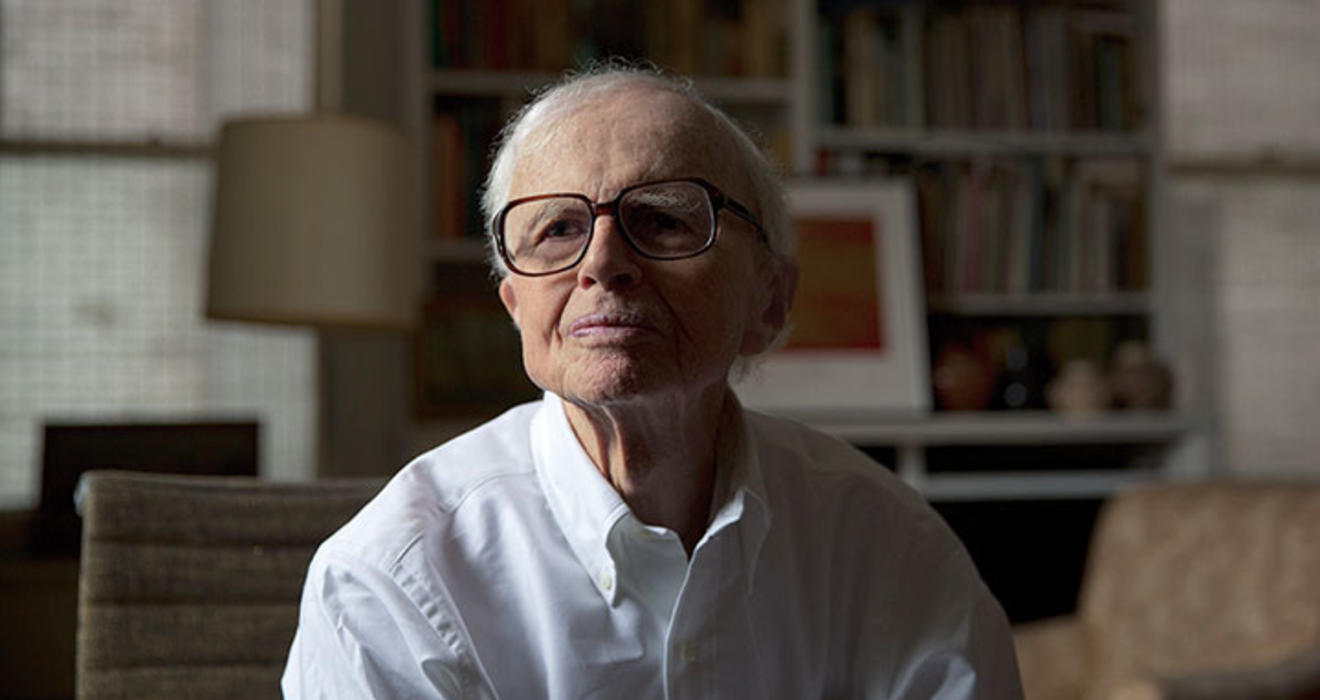
Oct. 7, 1922 – May 12, 2015
Credit Bill Zinsser ’44, long before he became an Ivy League professor and best-selling author, with perhaps the lone instance of the word omphalos appearing in these pages.
It was 1967, and the born-and-bred New Yorker, then 45 and a freelance writer, was chafing at TIME’s “Man of the Year” title going to the 25-and-younger generation. In a Horizon magazine column reprinted in PAW, Zinsser quoted a bloated, bloviating passage on that generation’s alleged merits — draped in terms such as psephologists, sentience, and omphalocentric that surely sent the average reader fumbling for a dictionary — and concluded in his quintessentially “Bill” style: “Frankly, friends, that kind of writing gives me a pain in the omphalos.”
Though Zinsser studied at Princeton and later taught at Yale, he was not of the ivory-tower intelligentsia. “He wanted to be seen as a man of the people,” says his son, the artist John Zinsser. “He was anti-academic. He rarely read literature, and he admired sportswriting most of all.”
To hear her husband’s “omphalos” passage read aloud months after his passing at age 92, Caroline Zinsser laughs. No, he wasn’t one for navel-gazing, she agrees. “He always said, ‘I have no inner life.’ He didn’t spend any time dwelling or analyzing. He just looked at life and thought, ‘What can I turn this into in terms of words and writing?’ ”
Though Zinsser studied at Princeton and later taught at Yale, he was not of the ivory-tower intelligentsia.
And so the nonfiction-writing course he taught at Yale became On Writing Well, a textbook that sold more than 1.5 million copies. A family outing to the demolition derby with John and his sister, Amy, became fodder for Dad’s column in The New York Times “Home” section. (Or maybe, John now wonders, it was the other way around, and the column decided the family’s entertainment.)
Even Zinsser’s 1954 honeymoon doubled as an assignment for the New York Herald Tribune — covering the Mau Mau war in Kenya. “I felt like all of New York was coming along on my wedding trip down the Nile and through Belgian Congo,” remembers Caroline. “But it’s hard to go through a tribal war and be a writer and not write about it.”
Successful writers now perched everywhere from the Times to The New Yorkerwill testify to Zinsser’s legacy as a teacher and a mentor, but he lived and died as a writer. He honed his craft of stringing together clean and simple sentences any way he could: film and theater reviews, 19 books (all nonfiction), song lyrics, wry essays for each major ’44 reunion, and “clever, hilarious poems for every relative’s various milestones,” says Caroline. As glaucoma stole his sight in his final years, he announced to friends in 2012 his availability for consulting, coaching, anything to keep him busy. “No project too weird,” he wrote to them. Zinsser even wrote his own Times obituary, Caroline adds, but the Gray Lady went with her own writer.
Yes, the man who famously wrote, “There’s not much to be said about the period except that most writers don’t reach it soon enough,” could be persnickety, as his son puts it, about a lazy writer’s clutter of words. (“I said ‘actually’ the other day and thought to myself, oh, Bill would hate that,” says Caroline.)
But Zinsser was not a minimalist in life. Until the day he died, he received a steady stream of friends and former students in the Manhattan apartment he had packed with some 1,500 books and the sentimental stuff of nine full decades. On the bedside table, he kept a horseshoe once given to him for luck, an autographed baseball, a clay figure that John made as a little boy. “That wasn’t clutter to Bill,” says his wife, “but memories.”
Sandra Sobieraj Westfall ’89 is People magazine’s Washington bureau chief.






No responses yet